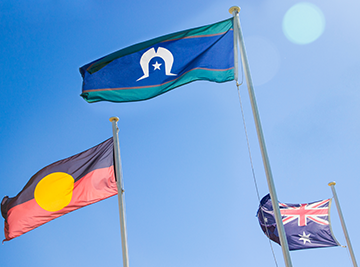

Year 12 Australian History Units 3 and 4
Overview
In Units 3 and 4 Australian History, you will develop your understanding of the foundational and transformative ideas, perspectives and events in Australia’s history and the complexity of continuity and change in the nation’s story.
Unit 3 War and Upheaval.
In Area of Study 1, you willinvestigates the debates and perspectives about Australia’s participation in World War One and World War Two. You will analyse the ways in which social, political and economic cohesion of the nation was influenced by the impacts of these conflicts, including different perspectives about participation in war and conflict, enlistment and conscription and the ways that different groups experienced the war.
In Area of Study 2, you will investigate Australia’s involvement and reasons for participation in post-World War Two conflicts and the subsequent debates arising from these conflicts. The changing reasons for Australia’s participation in conflicts was influenced by shifting alliances, fears of Communism, desires for regional security, concerns regarding terrorism and the evolving nature of enlistment and service in the military forces. You will consider the impacts of these conflicts on groups in Australian society and the differing ways in which Australians responded.
Unit 4 Power & Resistance
In Area of Study 1, you will investigate the ways in which the colonisation of Australia began as a complex story of the exercise of power and resistance to authority. Aboriginal and Torres Strait Islander peoples confronted the challenge of colonisation in a variety of ways, from frontier battles and conflicts that resisted the dispossession of their land, to adaptation and attempts to coexist, survive and preserve their culture. Resistance also emerged among the settler communities and their descendants who challenged governing structures, sought democratic rights, land reforms, and social, political and economic rights and reforms. In Area of Study 2, you will investigate how Australian democracy and society were challenged in the post-colonial world that emerged after 1945 and the extent to which these challenges were influenced by perspectives of, and events in, other nations. The end of World War Two saw increased challenges from Aboriginal and Torres Strait Islander peoples claiming citizenship and land rights, struggles for improved workers’ rights and conditions, the push for women’s equality and demands for LGBTIQA+ rights. Over this time there was increasing awareness and acceptance of social movements and protests as a feature of Australian democracy.
Who is it for?
The study of Australian history is considered both within a national and a global context, particularly Aboriginal and Torres Strait Islander peoples and culture, a colonial settler society within the British Empire and as part of the Asia-Pacific region. Throughout the course you will come to understand that the history of Australia is contested and that the past continues to contribute to ongoing interpretations, debates and tensions in Australian society.
Therefore, Australian History is for students who are:
- curious about the past
- open-minded when considering new ideas
- willing to argue their point of view using persuasive evidence
passionate about learning how historical events have shaped, and are continuing to shape the world today.
What do you do?
In Units 3 and 4, you will construct arguments about the past using historical sources (primary sources and historical interpretations) as evidence to analyse the continuities and changes, and evaluate the extent to which change occurred in the lives of Australians. You will investigate the significant turning points and trends in Australia’s past to identify the causes, patterns, direction, pace, depth and impact of continuity and change in society.
As well as considering the extent to which events, ideas, individuals, groups and movements contributed to, influenced and/or resisted change. In addition to considering the competing historical interpretations, debates and the diverse perspectives of people at the time and how they may have changed while others may have remained the same.
What skills do you need?
There are no prerequisites, but the study of Australian History requires a commitment to read regularly, the ability to critically analyse historical sources and interpretations, and to clearly express ideas in response to the weekly submission tasks.
In addition, having a questioning and curious attitude, and good time management will help you to succeed in this subject.
What skills do you develop?
In the study of Australian History you will develop the skills to:
- ask and use a range of historical questions to explore the foundations for continuity and change
- evaluate sources for use as evidence
- analyse the perspectives of people and how perspectives changed and/or remained the same over time
- evaluate historical interpretations about the foundations of continuity and change
- analyse the causes and consequences of continuity and change
- evaluate the extent of continuity and change in Australian society
- evaluate the historical significance of ideas and events that led to changes to, and continuities in, Australian society
- evaluate the historical significance of changes to and continuities in Australian society
construct arguments about continuity and change in Australian history using sources as evidence.
Requirements
Internet is needed to access this course.
All work will be completed and submitted online weekly. The course and many supplementary activities are online.
Things to think about
Your weekly work will be a variety of tasks, which include: weekly readings, quizzes, history note-taking, skill building tasks, source analysis tasks, short answer questions, and attending the online lessons.
SAC assessment tasks will include the following: a historical inquiry; evaluation of historical sources; extended responses; and, essays.
Things you can do now
Watch the following videos which explore some of the key historical events we will examine throughout the study of Australian History:
- Defining Moments: Eureka Stockade
https://www.youtube.com/watch?v=or5Q3hkztoU
- Defining Moments: Women’s suffrage
https://www.youtube.com/watch?v=wmj-LKR7HD4
- Defining Moments: Australian Federation
https://www.youtube.com/watch?v=ZBPB883LE4Y
- Defining Moments: 1967 referendum
https://www.youtube.com/watch?v=6mB8fXkGzoo
- Melbourne moratorium against Vietnam War
https://www.youtube.com/watch?v=3R5zKW3Y1U4
Go to the VCAA website for more information about this subject.
https://www.vcaa.vic.edu.au/curriculum/vce/vce-study-designs/australianhistory/Pages/index.aspx
Things to have a look at
Aboriginal people are calling for more recognition of Australian Frontier Wars | The Point | NITV
Warning: The following material may contain the names, images and voices of Aboriginal and Torres Strait Islander people now deceased.
Australian Frontier Wars are said to have lasted from the arrival of the British in 1788 to as late as 1934.
Unlocking World War I service records – Indigenous Anzacs
Warning: The following material may contain the names, images and voices of Aboriginal and Torres Strait Islander people now deceased.
Explore the challenges and stories that can be uncovered through World War I service records about Indigenous Anzacs.
Germaine Greer brings feminism to Australia (1972) | RetroFocus
Caroline Jones interviewed Germaine Greer and asked Aussie women for their views on women’s liberation for This Day Tonight, 22 March 1972.